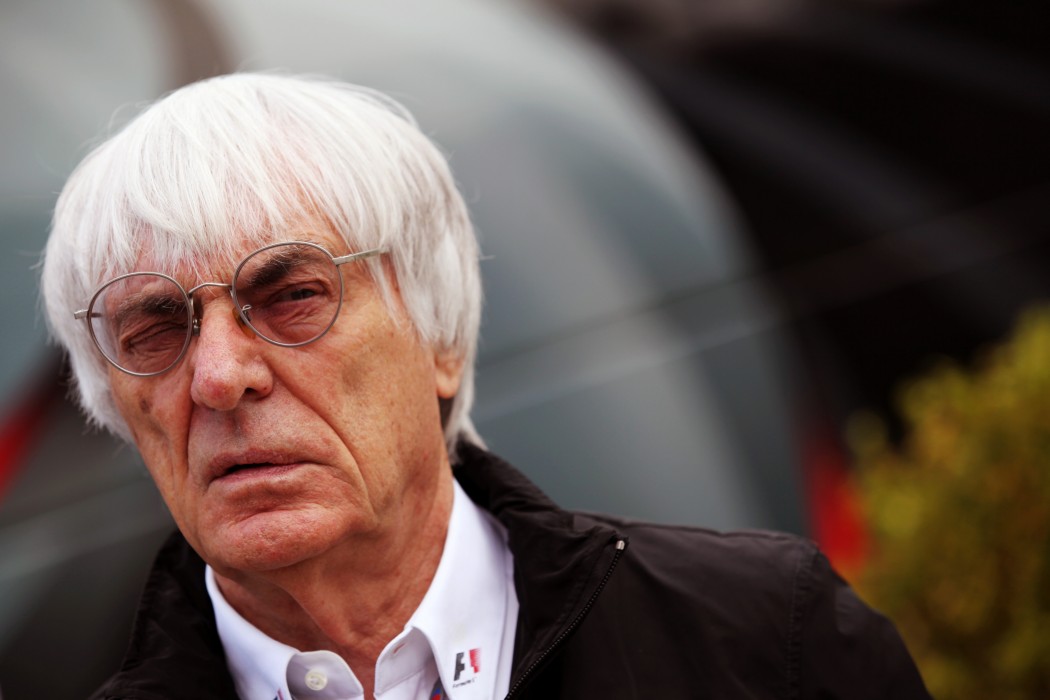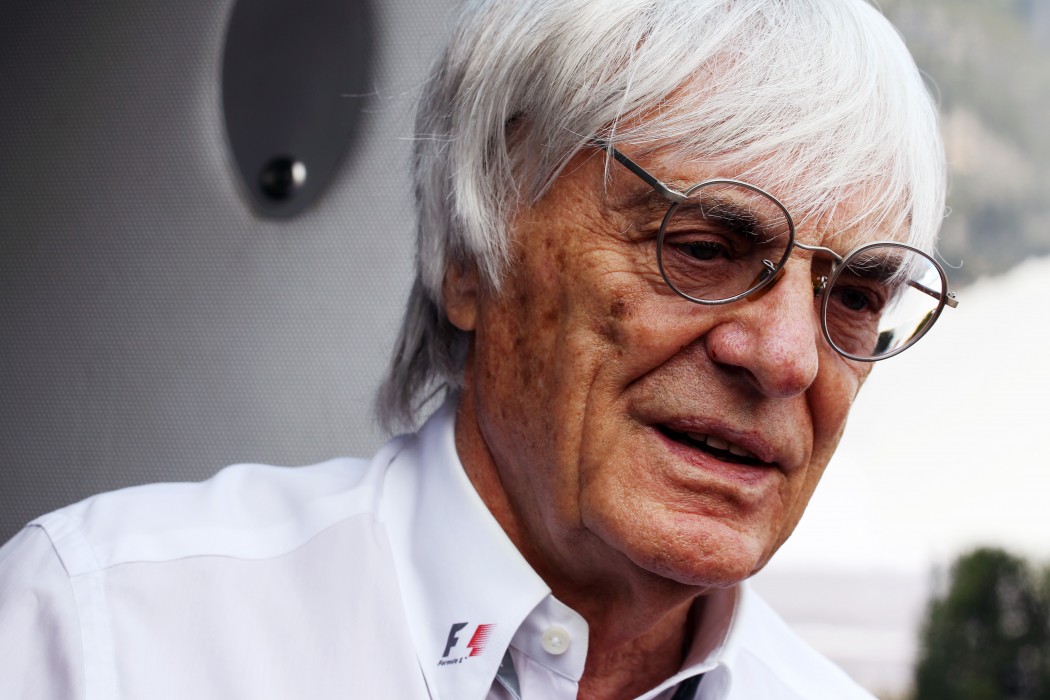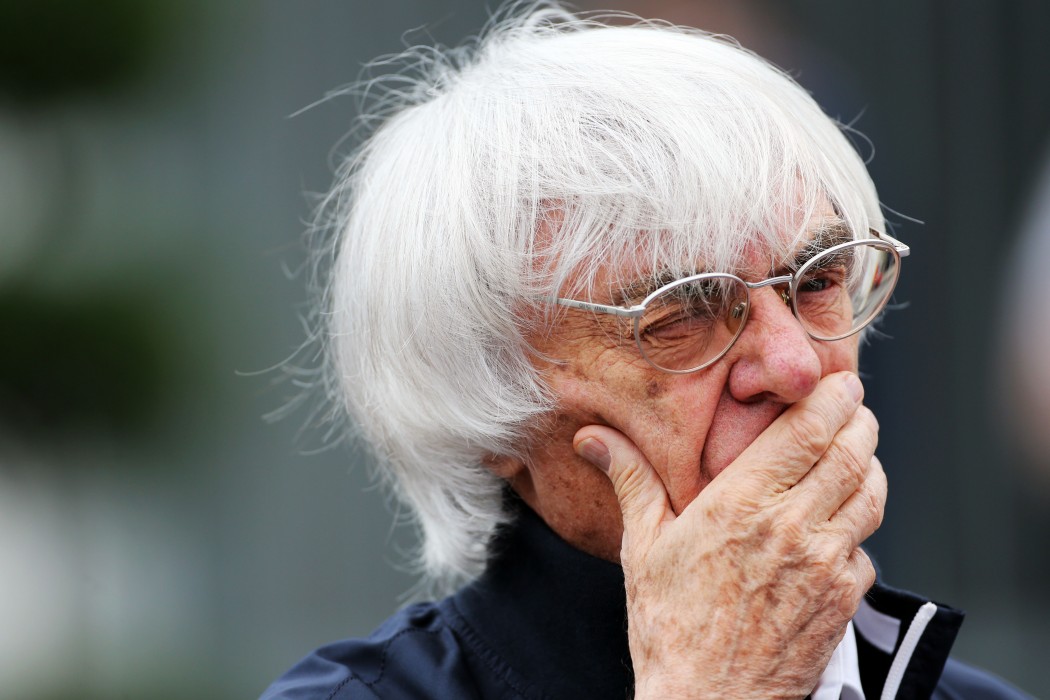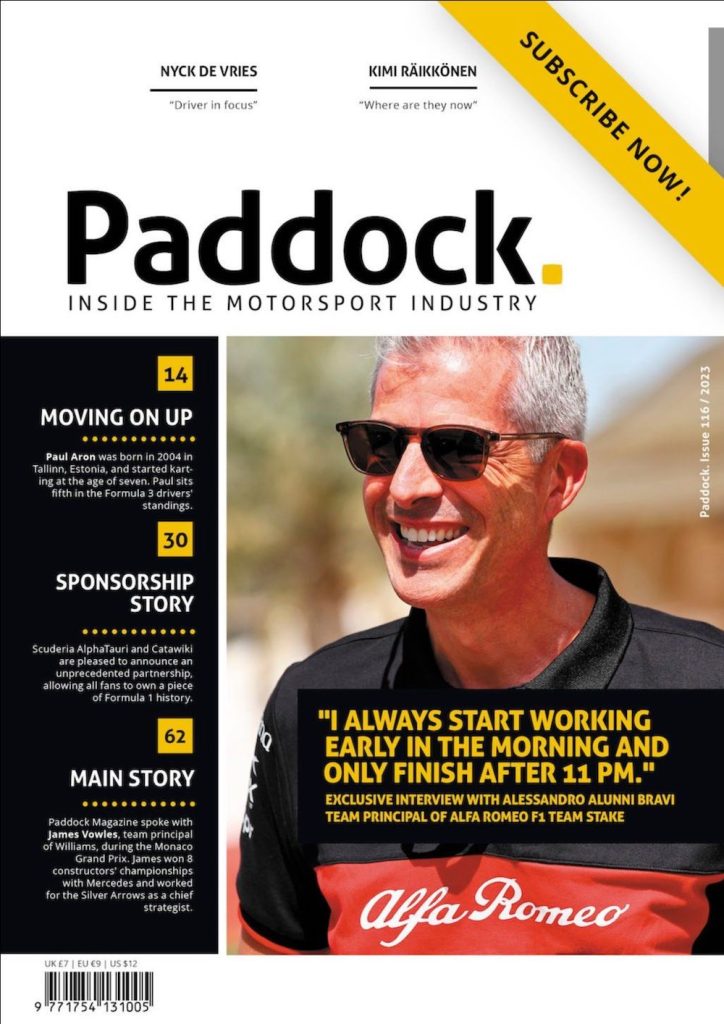Bernard Charles Ecclestone has risen from a wannabe racer to Formula 1’s chief manager. But now it seems as if he is running out of road.
Click here to subscribe to our print edition!
To most people Bernie Ecclestone is not Formula 1’s chief promoter, to them, he IS Formula 1. Hence, the growing age of the F1 mastermind paired with his recent court cases and his increasingly eccentric ideas are beginning to raise doubts amongst experts and fans, where the sport is going, and, God forbid, what happens, if Bernie finally has to retire.
I don’t get any individual pleasure, because we don’t win races or titles in this job. I’m like most business people. You look back at the end of the year and you see what you’ve achieved by working out how much money the company has made. That’s it.
“I don’t think democracy is the way to run anything. Whether it’s a company or anything, you need someone who is going to turn the lights on and off”, Ecclestone clearly explained he was not a fan of joint decision making. And as alarming as this attitude may seem to many of you, it was precisely this way of leadership that has lifted Formula 1 from a bi-weekly mechanics competition to the multi-billion business it is today. It is fair to say that without Mr E, the sport would not be the pinnacle of motor-racing anymore.
Missing the point
But over the years, Ecclestone has been smitten by his power and seemingly forgotten about the true spirit of the sport he once so loved. “I don’t get any individual pleasure, because we don’t win races or titles in this job. I’m like most business people. You look back at the end of the year and you see what you’ve achieved by working out how much money the company has made. That’s it.”
This exaggerated urge for wealth and omnipotence has made the Brit raise entrance fees for new tracks to ridiculous spheres, which meant moving to locations that could afford them – i.e. mostly autocratic regimes looking for prestige – and at the same time whittle down traditional racing venues. Moreover, it has made participating in the championship for teams so expensive that all outfits which had entered the grid only in 2010 are gone again. In addition, teams with a long-standing tradition like Sauber or Lotus/Renault are financially stricken.
Locked out
The sport’s all-powerful Svengali stood down from Delta Topco, the board consisting of F1’s shareholders, before going on trial for bribery in Munich earlier this year. After handing over a £60 million settlement in August, he announced his return to the board as the charges against him had been dropped. However, several shareholders were embarrassed when the judge described him as an “unreliable witness” and the board refused to reinstate him. Later Ecclestone rubbished such claims. “The agreement was, when this trial started, I agreed to stand down from the board while the trial was on. Afterwards, it’s business as usual.”
Either way, it seems, the 84-year-old no longer has carte blanche to act as he wishes. Also on the teams’ side, the number of his disciples is diminishing. Unhappy about the vastly uneven distribution of income shares among the starting teams, Force India owner Vijay Mallya was even prepared to launch the first strike in the sport since Niki Lauda and Didier Pironi had locked all the drivers in at Kyalami protesting against the introduced super license regulations.
A sinking ship?
So who actually runs the sport? As it seems no one really. Bernie could not fight off a crisis that had been coming for more than two years, and neither could FIA President Jean Todt. The casual observer may believe Formula 1 is owned by the FIA, after all, it is known as the FIA Formula 1 World Championship. But actually, a European Commission antitrust investigation in 2001 ruled that the governance and commercial management of the series had to be separated. So the FIA licensed the commercial rights to Delta Topco for a period of 100 years in exchange for a one-time payment of USD 313.6 million.
The FIA licensed the commercial rights to Delta Topco for a period of 100 years in exchange for a one-time payment of USD 313.6 million.
In 2005, CVC Capital bought a controlling interest in Delta Topco, and consequently, was also granted the F1 commercial rights. The FIA has recently taken possession of 45,819,734 shares in Delta Topco, which may seem a lot. Considering that the company is split up into more than four billion shares, it comes down to just over one per cent. Ecclestone’s long-term protector and greatest admirer have been Donald Mackenzie, the chairman of Formula 1’s majority owners CVC. An affable man in private, Mackenzie is publicly reticent to the point of invisibility. This private equity company makes a fortune out of Formula 1 but does not reinvest any of its profits. Some directors are keen to sell up. But co-founder and co-chairman Donald Mackenzie seem reluctant to move on.
No successor insight
So if Ecclestone has finally become “unbearable”, “too powerful”, or “uncontrollable” for the shareholders, who should breach the gap? His right-hand man Pasquale Lattuneddu is both a loyal companion and not a go-to-guy. Former racing greats like Niki Lauda, Gerhard Berger or Alain Prost have all expressed being honoured but instantly brushed off any such ambitions. Flavio Briatore, long treated as an insider tip, has disqualified himself with the Singapore GP scandal of 2008. Paul Walsh, a former CEO of drinks giant Diageo, is thought to be on the verge of taking over as chairman of the Formula 1 Group. Known to be a tough operator, the 59-year-old Brit is expected to replace Peter Brabeck. Walsh’s appointment would represent another clipping of Ecclestone’s wings after nearly 40 years of running F1. Insiders expect Walsh to push the sport’s ringmaster and keep a closer eye on his dealings. CVC Capital has plans of an F1 flotation on the Singapore stock exchange, but according to legal advisers, Freshfields Ecclestone could not remain as chief executive in case of an IPO.
On the other hand, in the event of a sale – several media groups have recently claimed interest – Bernie is likely to be replaced. At the season-closing Abu Dhabi GP, Mackenzie was sounding opinions in the paddock and he was also present at a meeting with the sport’s rebellious smaller teams. Showing pre-emptive obedience, Ecclestone met with Walsh in Abu Dhabi stating he “wouldn’t have a problem with him taking executive responsibilities. If it was something positive, I would be delighted.”
Ecclestone’s observation that Formula 1 would prefer to cater to rich over-70s than pursue a younger generation has raised several eyebrows and hardly helped his credibility as the sport’s promoter. The sport has to decide who it is trying to appeal to because Formula 1 relies on the media and sponsors to promote it and it has not yet come to terms with social media.
















Related Articles